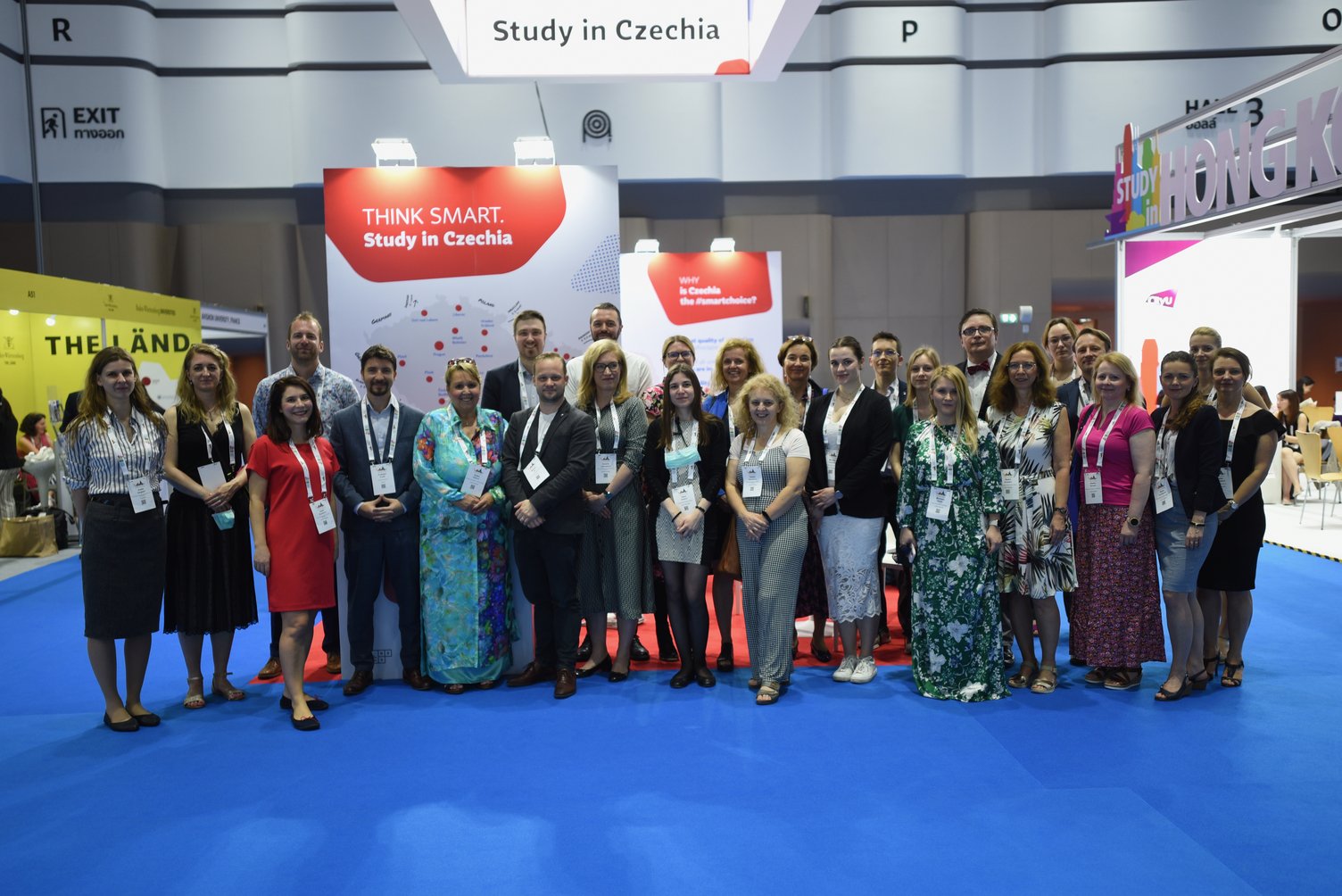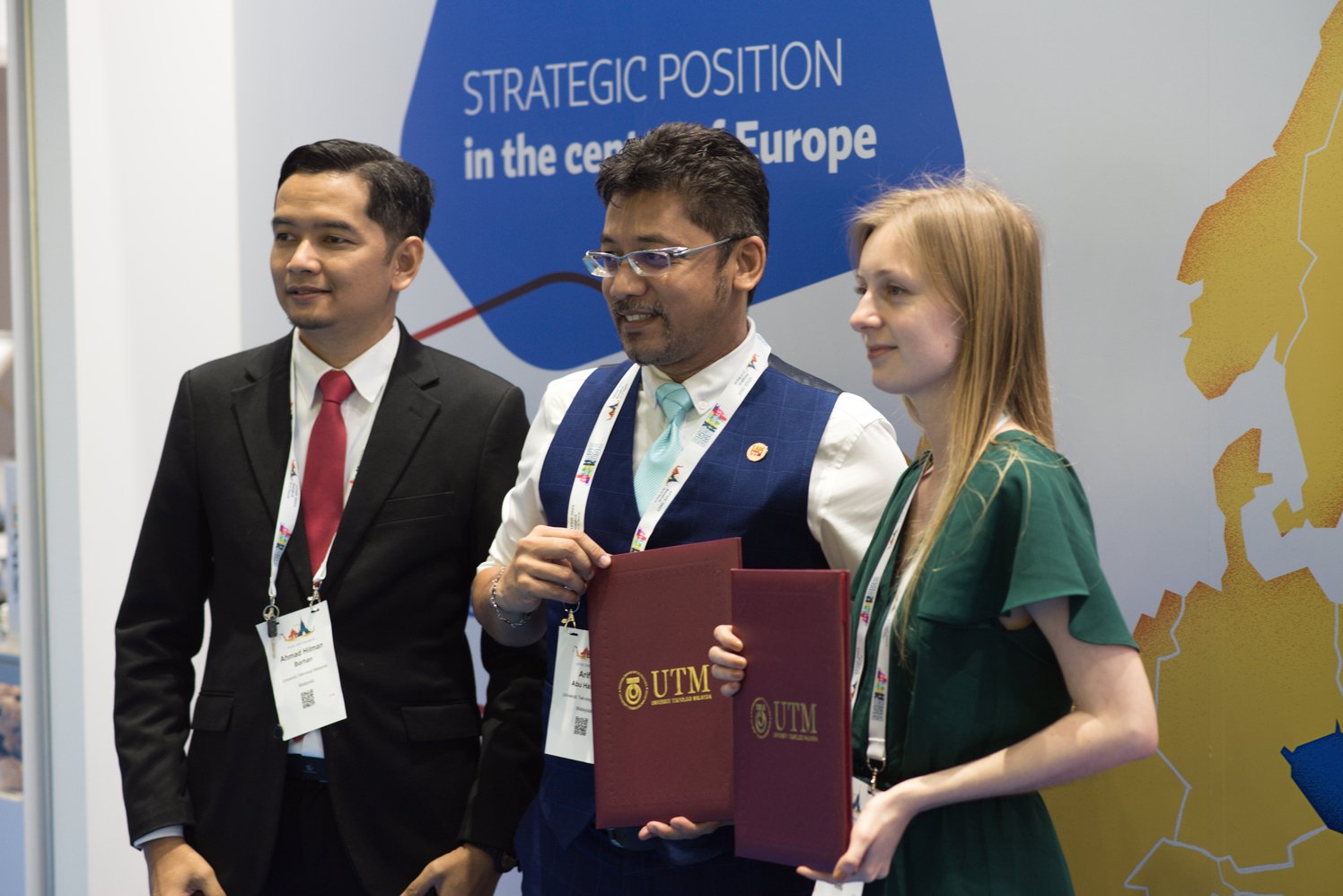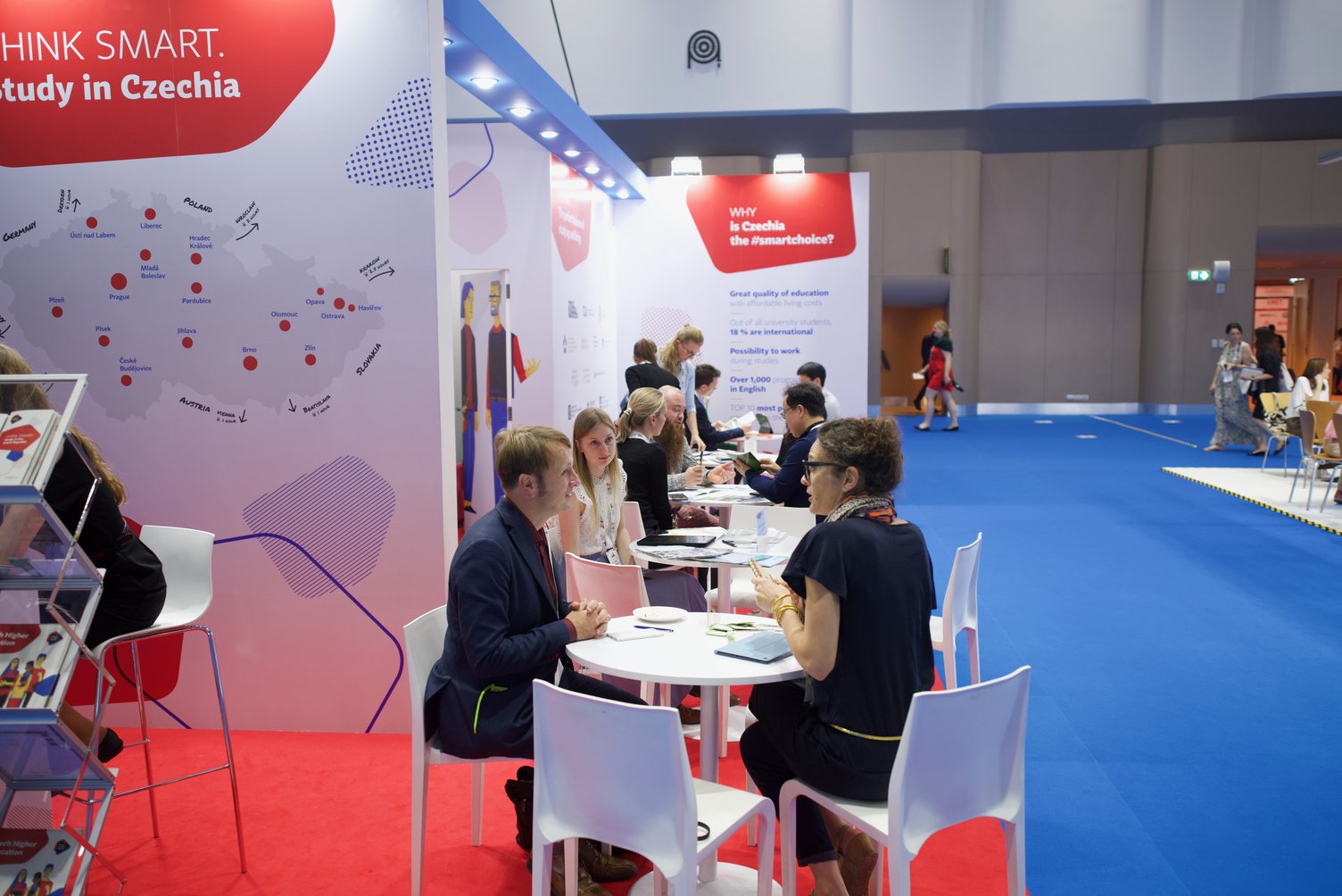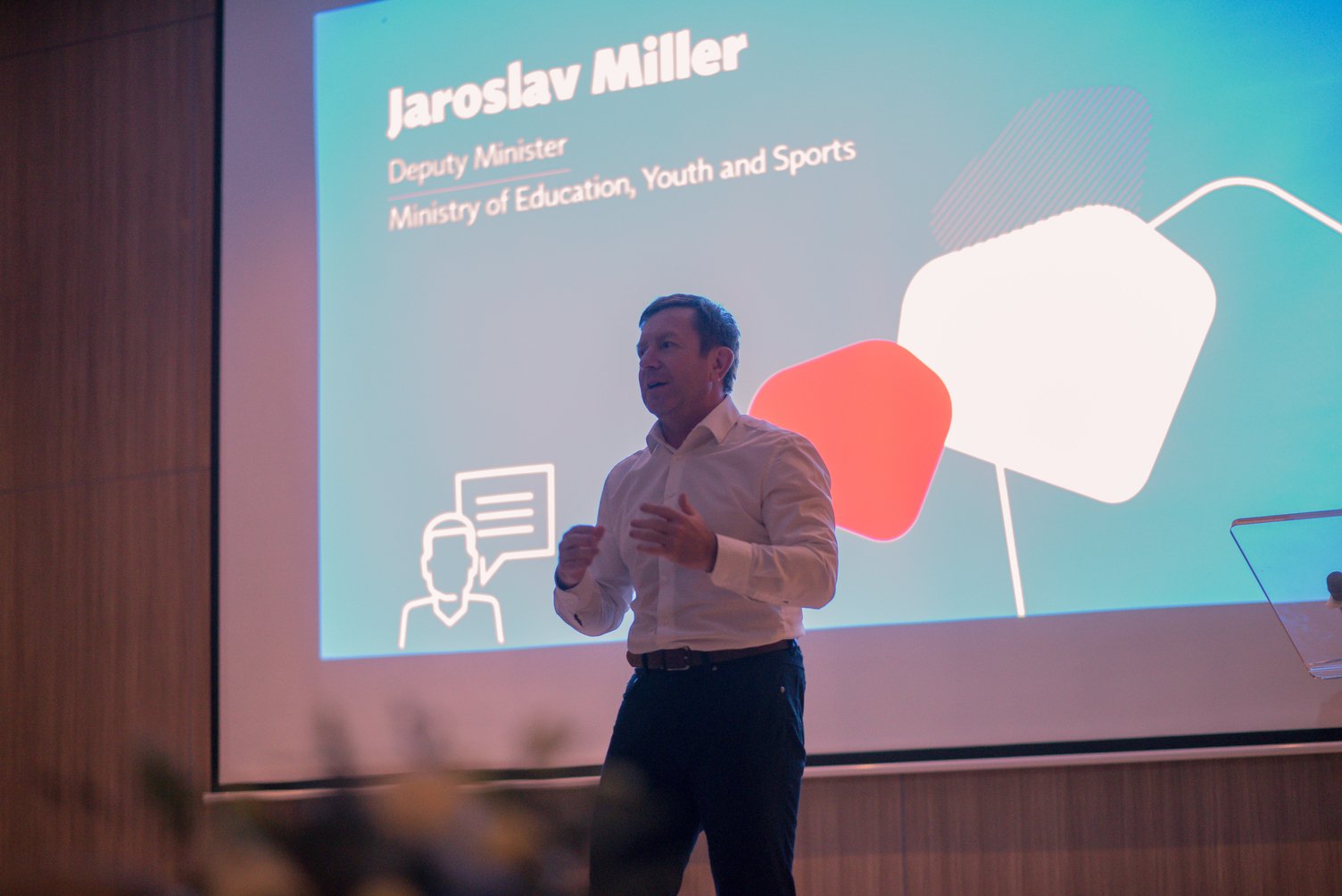Czech Universities at APAIE. Asia is a region of the future that we cannot ignore
On the importance of international cooperation from the perspective of universities, ministries and diplomacy.

The Asia Pacific Association for International Education (APAIE) conference, held this year in Bangkok, Thailand, was attended by 417 universities and other organisations from 36 countries. Asian institutions were matched in numbers by European ones. They were complemented by nearly 70 organisations from the American continent and nearly 20 from Australia and New Zealand. Among the exhibitors, there was also a Czech stand under the Study in Czechia banner, presenting thirteen Czech universities. Representatives from France, Spain, Poland and Japan, for example, also chose a similar model as Czechia, i.e. the presentation of universities at one national stand.
"We definitely welcome the Czech stand. It makes us more visible at the fair and helps deepen relations between Czech universities, which is beneficial because we can share experiences. As seen through the eyes of a visitor to the fair, it is easier to find a national stand than an independent university," says Zuzana Veselá from the Technical University of Liberec.
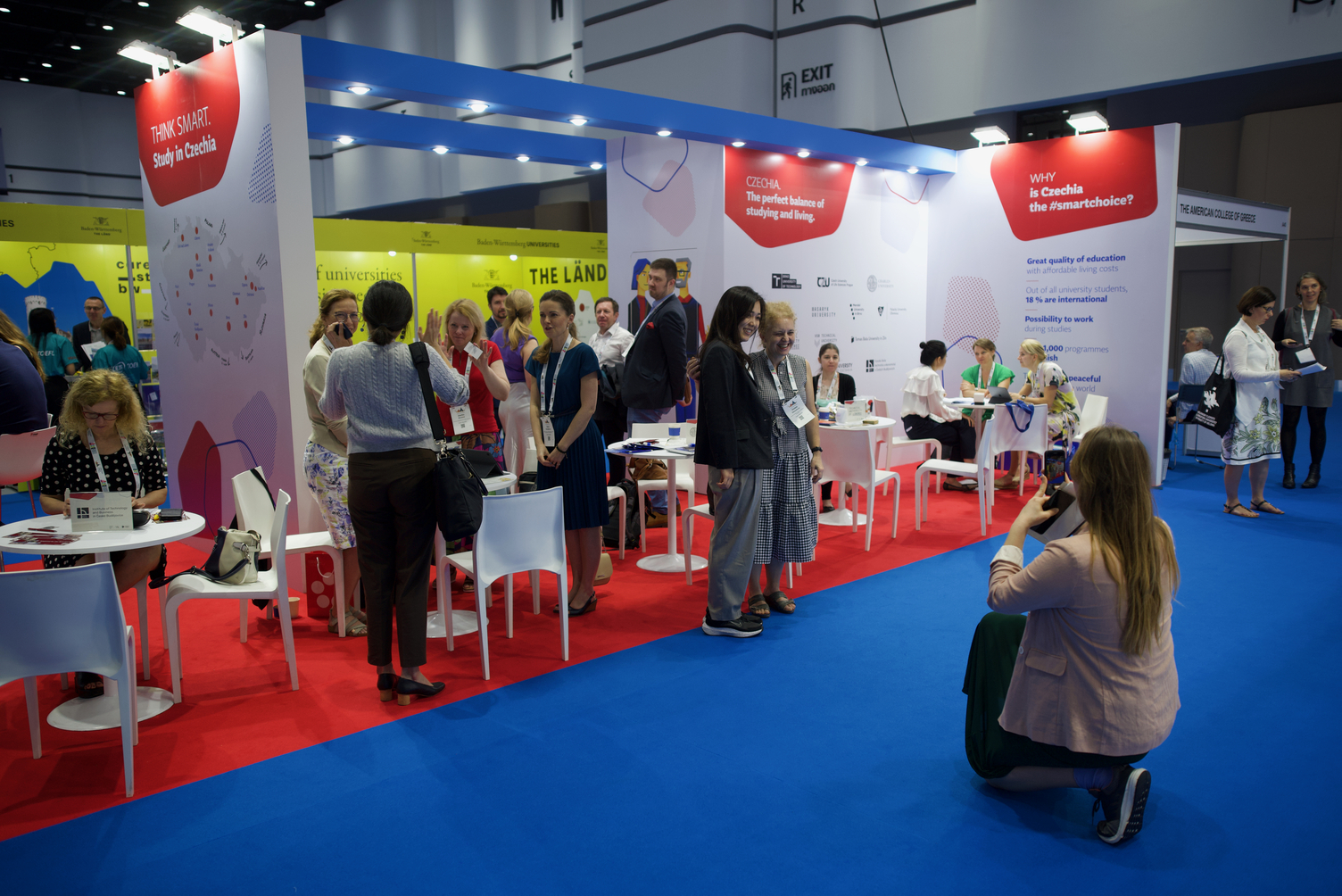
There is worldwide interest in Czechia
Although we often think of Czechia as a small country, its importance in the field of education is not negligible and the interest in the Czech stand in Bangkok certainly confirmed this. While university representatives talked at the consultation tables with their counterparts from all over the world, confirming the continuation of existing cooperation and arranging new partnerships, other delegates were also approaching the stand, interested in establishing contacts with Czech educational institutions.
"In the past, our university has had several partnerships with universities in the Asia-Pacific region, which brought very interesting projects in the field of education as well as in the field of science and research. APAIE is a great opportunity to meet all these universities and renew cooperation if it ended when the projects came to a close. Thanks to personal contact, we also dispelled doubts about the continuation of cooperation with some institutions, and we were able, for example, to hand over a signed cooperation agreement with a university in Japan," lists Veselá the benefits of participating in APAIE.

Asia as a future global hub
The presence at the fair in Asia is understandably conducive to establishing contacts with Asian institutions, but at the same time, the Czech delegation's trip to Bangkok is of considerable symbolic significance.
"With the presence of the Czech stand at APAIE, we are giving a clear signal to institutions from Asian countries that Czechia is interested in cooperation and appreciates its Asian counterparts. Southeast Asian countries in particular are developing dynamically, and in some areas, such as technology, they are achieving extraordinary results. We should therefore not miss the opportunity to establish valuable partnerships and enrich each other," says Michal Uhl, Director of DZS.

Technological development in Asian universities is at a very high level. That is why technical and engineering faculties in particular are interested in cooperation, as they find a number of interesting partners here. However, students from Asia are also interested in the study of natural and social sciences or medical disciplines. Inter-university partnerships are therefore developing in many areas.
"Southeast Asia is one of the regions of the world that is growing in importance. Several billion people live here, society is growing richer, and the region is becoming the economic heart of the world. One could say that this is the region of the future and to ignore it would be to ignore one of the future global centres," said Jaroslav Miller, Deputy Minister of Ministry of Education, Youth and Sports.

"Both the European Union and Czechia have recently developed their Indo-Pacific Strategy, which states that this region is where the centre of gravity of world events will shift," explains Pavel Pitel, the Czech Ambassador to Bangkok, explaining the importance of cooperation with Asian countries. "That is why I think we should build a good base for Czech foreign policy here and that it is very good that Czech universities have the opportunity to present themselves here in Bangkok. The exchange of students between countries contributes to greater understanding and to the creation of an environment that is favourable for Czechia in areas outside education. From a diplomat's point of view, I see that through the internationalisation of education, the edges between countries are being blurred and the sharp borders drawn somewhere on the map are being blurred. It is a way of removing misunderstandings between nations and establishing cooperation."
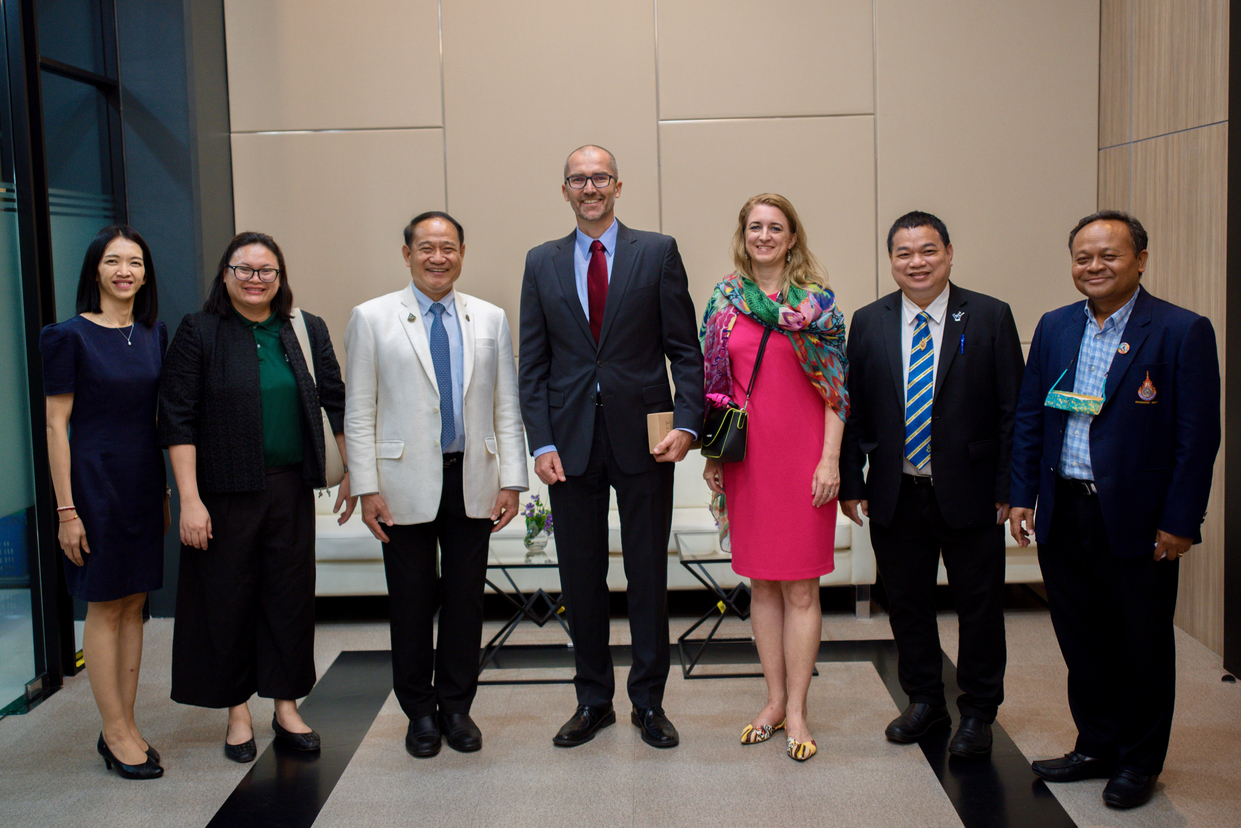
The aforementioned Strategy of the Czech Republic for Cooperation with the Indo-Pacific states that Czechia plans to strengthen its cooperation in science, research and innovation in the region. It mentions inter-university cooperation as an important element of this cooperation, which often overlaps into creating conditions for the development of economic cooperation, foreign investment or people-to-people contacts in general.
The Indo-Pacific is one of the main drivers of global technological and social growth. It is a key region in terms of energy security and the production of raw materials. These conditions create an opportunity for the greater activity of Czech companies, mutual trade and investment, the strategy of the Ministry of Foreign Affairs further states.
Asian students at Czech universities
Currently, more than 54,000 foreign students are studying in Czechia, and make up 18% of all undergraduates at Czech universities. The number of students coming from Asian countries is nearly three thousand. This number grows by several hundred every year, yet, given the size of the Asian countries, it can be argued that we are far from exhausting the potential of this region.
The motivation of Asian students to choose Czechia as a study destination can be seen in a survey we conducted in 2019 among international students. For students from South and Southeast Asia, the primary reason for choosing Czechia is a particular study programme, and the reason for choosing a particular university is the opportunity to research. Czechia is the first choice for only half of them, while a fifth would prefer to study the same programme but in another country. Students from this region primarily think of Anglo-Saxon countries or Western Europe, due to the high financial cost of living in these countries they head to the more affordable Czechia, where good quality education is offered at a relatively low price. It is not a good sign for Czechia that 87% of students find the visa process time-consuming or administratively demanding.
For students from Central Asia, the reasons for choosing Czechia are mainly the high security and the favourable location in the centre of Europe. This group of Asian students is also not very satisfied with the visa process, specifically its financial aspect - they consider the cost of visa processing to be high or rather high. Only 57% would choose to study the same programme at the same university again if given the opportunity, but surprisingly up to 92% would recommend studying in Czechia to friends and almost a third plan to continue their studies or work in Czechia. For these students, the fact that they are studying in Europe, in a very convenient location, and the opportunity to study for free in the Czech language, for example, plays a big role.
Why we need an international environment in universities
Individual universities and the state as a whole are trying to support internationalisation through the Ministry of Education, Youth and Sports. The basis of the Strategy for the Internationalisation of Higher Education for the period from 2021 is the central vision that through the international dimension and quality of education, research and the third role, Czech universities will prepare their graduates for a leading role in the global knowledge society and thus contribute to the prosperity and sustainable development of communities at home and abroad.
"Internationalisation is absolutely key to the quality of a university. The quality of a university depends, among other things, on the quality of the students you have, and of course universities that recruit nationally can never be as successful as universities that recruit globally. Part of the quality of a university is cultural diversity," explains Miller.
The challenges of today's world are global in nature, and therefore we need to look for global solutions. To be able to do this, we must be able to see the world in a broader context. This is where foreign experience, understanding different cultures and social contexts, helps. Every university should therefore strive to create a diverse environment that encourages international exchange and collaboration. The degree of internationalisation is therefore also one of the indicators of the quality of schools measured by prestigious international rankings such as the QS University Ranking.

"Internationalisation is becoming even more important in the context of demographic development. As Europe's population ages, the economy and social systems of many countries will depend on immigration. We know from research that up to half of foreign students stay in the host country after completing their studies and subsequently enter the labour market. Czechia should therefore seek foreign graduates from its universities, as they are an educated workforce and have already developed ties and knowledge of the local culture during their studies," Uhl concludes.















